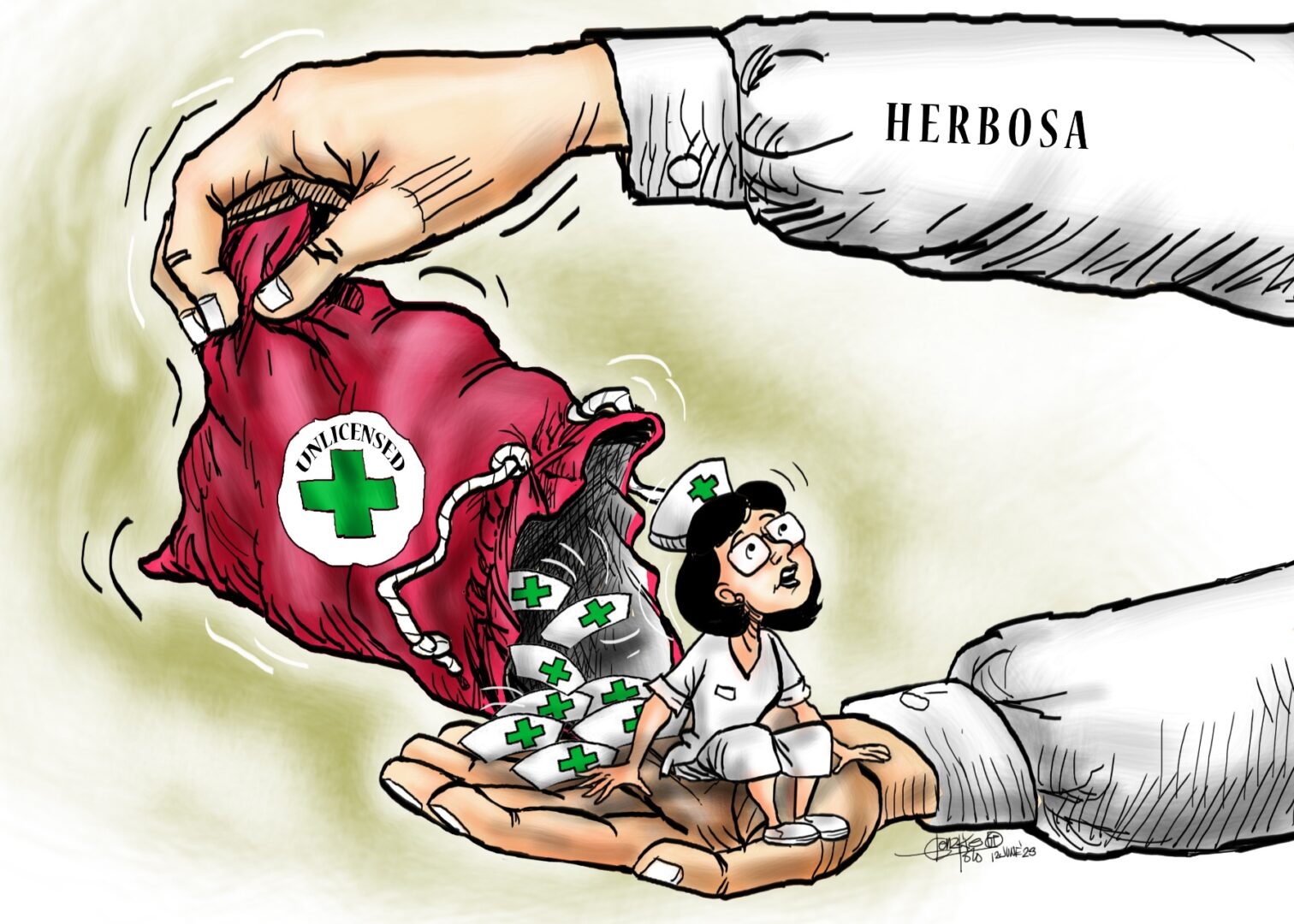To resolve the nursing shortage in the nation, the Department of Health has proposed to draw from the pool of unlicensed nursing graduates.
Health Secretary Teodoro Herbosa said he has spoken with the Professional Regulation Commission about the plan to employ these nurses for the meantime while they are given three to five years to pass the board exams before they are hired on a full-time basis.
Private hospital owners have reacted favorably to Herbosa’s idea while promising to fix the disparity in pay between the nurses they employ and government nurses. Ho-hum. More lip service from those in the private sector who sacrifice our nurses before the altar of profitability?
Several issues, such as the strong demand for nurses abroad, the poor pay for nurses at home, and the dearth of possibilities for professional advancement, have contributed to the nursing shortage in the Philippines.
Because Filipino nurses are highly skilled and deliver high-quality care at a cheaper cost than nurses from other countries, the Philippines is one of the world’s top suppliers of nurses.
Similarly, a significant contributing factor to the nursing shortage in the Philippines is the poor pay for nurses. It’s one for Ripley’s Believe It Or Not, but nurses in the Philippines make an average of just P12,000 per month. Even without taking into account the fact that they frequently work 16-hour days with no overtime pay, that is starvation wages by any standard. It is considerably less than what nurses in other nations are paid. For instance, a nurse in the United States typically makes roughly $75,000 a year.
With an annual income of P144,000, Filipino nurses working in the Philippines would find it difficult to feed themselves, even if they have no dependents. The salary of the same Filipino nurse employed in the US would be $75,000, or P4,201,012 using the conversion rate of P56 to $1 as of 9 June 2023.
To alleviate the nursing shortage, Secretary Herbosa’s proposal to tap the pool of unlicensed nursing graduates is a positive move. If it pushes through, the DoH will be able to offer them the chance to further their knowledge and abilities by working while studying to pass the board.
Eventually, this will lessen the exodus of healthcare workers and enhance the quality of patient treatment.
Congress should support the DoH strategy by enacting legislation that will codify Herbosa’s proposal. This will strongly convey to the private sector the government’s commitment to enhancing nurses’ pay and working conditions. Additionally, it will encourage more people to pursue a nursing career.
Nurses serve as the foundation of the healthcare system. They are essential in providing patients with care. They should be treated with respect and adequately compensated.
During the pandemic, nurses and other medical professionals were our modern-day heroes. It is only fitting that they are allowed to live respectable lives by attending to their many challenges.
Likewise, the government must make investments in nursing education and training if we want to keep producing more nursing graduates.
This will make it possible to guarantee that there will always be sufficient numbers of skilled nurses to meet the needs of the population.
